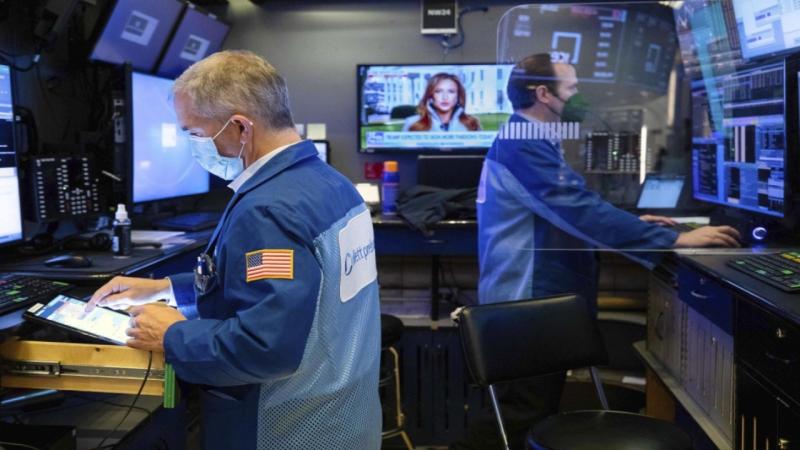The Daily Ten – $64 billion hedge fund profits, Chera family goes SPAC shopping, Vaccination Island…

The Daily Ten
1. Top hedge funds set performance record for clients making $63.5B in 2020, data shows | Fox Business Network
As a group, the most successful managers earned half of the $127B all hedge funds made last year
BOSTON – The world’s 20 best-performing hedge funds earned $63.5 billion for clients in 2020, setting a record for the last 10 years during a chaotic time when technology oriented stocks led a dramatic rebound from a pandemic induced sell-off, LCH Investments data show.
As a group, the most successful managers earned half of the $127 billion that all hedge funds made last year, LCH Investments, a fund of funds firm that tracks returns and is part of the Edmond de Rothschild group, reported.
Despite the pandemic that triggered a historic stock market sell-off in March, shut down large sectors of the economy and swallowed up millions of jobs, the 20 best hedge funds topped their 2019 returns of $59.3 billion. That was despite 2020 not being as profitable as the previous year for hedge funds as a whole, which saw earnings fall from $178 billion in 2019.
2. A West Virginia City’s Rising Fortunes Widen the Political Divide | WSJ
Morgantown, home to West Virginia University, grows more polarized as it becomes more prosperous and white collar
MORGANTOWN, W.Va.—Atop a hill just west of this university town stands a gleaming 400-acre entertainment and recreation complex, converted in recent years from a former coal mine.
To Morgantown residents, Mylan Park, which last year added a $48 million state-of-the-art aquatic center, serves as a sign of the city’s recent ability to thrive, even as much of the state and region have struggled from job losses and a shrinking population.
Yet as the city of 30,000 on the Monongahela River, home to hospitals and West Virginia University, has grown more prosperous and shed some of its blue-collar roots, it also has become more politically polarized, at least compared to surrounding rural counties that have tilted toward Republicans.
3. One island welcomes all vaccinated travelers — but some may want to wait | CNBC
Seychelles this month became the first nation to welcome vaccinated travelers from all over the world, sparking excitement among international travelers.
But there are reasons some travelers — even vaccinated ones — may want to wait.
Throughout 2020, Seychelles reported enviably low Covid-19 infection rates. Except for a small spike in June, the beautiful country in the Indian Ocean typically registered zero cases most days last year.
Then Christmas arrived.
From Dec. 28, Seychelles started recording double-digit daily infections. To date, it has recorded 1,033 Covid-19 cases and three deaths. That number is still low for a country of nearly 100,000 people — by comparison, the U.S. had reported nearly 7,500 cumulative Covid cases per 100,000 residents as of Jan. 24.
4. The Architecture of Mass Vaccine Distribution | Bloomberg
Large Covid-19 vaccination programs are transforming football stadiums, parking lots and even art museums. But building the infrastructure of inoculation can get complicated.
In Berlin, the process of transforming large, now unused public spaces into mass vaccination hubs started weeks before a vaccine was approved.
Albrecht Broemme, the project manager in charge of setting up six of them, began laying out Lego models of six mass vaccination sites in November. Working with the staff of the Federal Agency for Technical Relief — he used to be the president of the agency and retired from it in 2019 — he turned his colorful plastic mock-ups into real-life facilities capable of churning out thousands of jabs a day. The goal was setting up sites that Berliners could file through like IKEA shoppers.
Among the first mass vaccination centers is the Arena Berlin, a bus-depot-turned-event space built in the 1920s. The building now has 80 vaccination booths numbered and separated by white metallic panels, capable of delivering 4,000 doses a day. Together, the six Berlin sites are expected to cost between $70 million and $95 million according to the Washington Post.
5. Tishman Speyer tower at Hudson Yards is Spiral-ing up | New York Post
It’s topping-off day Tuesday for The Spiral, Tishman Speyer’s $3.7 billion, 66-story Hudson Yards District skyscraper, beribboned with a band of cascading, landscaped terraces and hanging gardens.
It’s a milestone for the 1,041-foot-tall tower and for Tishman Speyer President/CEO Rob Speyer, who steered the project from the outset. But a greater satisfaction might be that its first signed office tenant was Pfizer Inc. — the pharmaceutical giant that produced a COVID-19 vaccine in record time.
“Pfizer’s team are the true heroes of COVID,” Speyer said. “We couldn’t be prouder.
6. Work trips are making a $5 billion comeback | TechCrunch
Would you bet millions of dollars on a corporate travel comeback? Doesn’t matter. Andreessen Horowitz, Addition and Elad Gil are anyways.
This week, the trio led a nine-figure financing round in TripActions, a software company that helps other companies book and manage corporate travel. But the news is (always) more than the number. I see TripActions’ growth as a signal to travel sector startups, which faced the brunt of the pandemic’s impact. We’ve heard the market is emerging again, but the fact that investors poured money into an up-round valued at $5 billion adds an extra layer of conviction.
TripActions, like many travel startups, laid off hundreds of employees in the beginning of the pandemic as the coronavirus froze business travel. It still hasn’t returned to pre-pandemic levels, but a spokesperson for the company said that a more distributed working class could boost corporate travels. If you don’t have to commute every day, maybe you don’t mind hopping on a flight once a month instead.
7. Why Getting Rich as a Solar Investor Is Still Super Risky | Bloomberg
Active Solar was one of last year’s best-performing funds, with returns of 183%. But success with an all-solar strategy comes at a cost.
After twice losing most of his investors’ money, things finally went according to Pascal Rochat’s singular plan. His fund, Active Solar, posted a 183% return in 2020 to make him the best-performing stock-picker in Europe. To reach these heights, the Swiss money manager changed nothing about his approach. He simply bet everything he had on solar power.
Among the companies in Active Solar’s $290 million portfolio are U.S. firm First Solar Inc. and Xinyi Solar Holdings Ltd., a Chinese specialist glass manufacturer for panels. The strategy has been same since the fund opened in 2008, and Rochat remains optimistic about his unwavering investment thesis. “The 21st century will stay in the history books as a century where economies got decarbonized,” he said from his office in Lausanne, Switzerland. “It looks quite clearly now that solar is a big winner of this, if not the biggest winner.”
8. How Bitcoin tanked on a false ‘double spend’ rumor | Fortune
Bitcoin fell around 15% on Thursday, briefly tumbling below $30,000 before rallying later in the day. This is hardly the first time the price has swung wildly—volatility is Bitcoin’s hallmark—but Thursday’s events are notable because they were partly triggered by false rumors of an existential event: a double-spend.
A “double-spend” incident is unfamiliar to most casual Bitcoin buyers, but preventing one is crucial to the integrity of the currency. If double-spends are possible, then everyone would rightfully lose confidence in Bitcoin and the price would go into free fall.
So what exactly is a double-spend? As the name implies, it means spending the same batch of Bitcoin twice, while tampering with the transaction record, known as blockchain, to get away with it. There is no proof such an incident has ever happened.
9. Foley-backed SPAC nears $7.3 billion deal with Blackstone’s Alight: sources | Reuters
(Reuters) – A blank-check acquisition firm backed by veteran investor Bill Foley is nearing an agreement to take Alight Solutions LLC, the U.S. benefits services provider owned by buyout firm Blackstone Group Inc, public at a valuation of $7.3 billion including debt, people familiar with the matter said on Sunday.
The deal illustrates how Alight has become an attractive investment target during the COVID-19 pandemic, capitalizing on the outsourcing of human resources functions by many companies that are seeking cost savings to preserve capital.
The transaction calls for Alight to merge with special purpose acquisition company (SPAC) Foley Trasimene Acquisition Corp, and could be announced as soon as Monday, said the sources, who requested anonymity because the negotiations are confidential.
10. Chera family goes SPAC shopping | The Real Deal
Retail giant is latest to join IPO craze
One of New York’s biggest retail owners is going shopping — with a blank check.
The Chera family’s Crown Acquisitions is raising $200 million for a special purpose acquisition company, or SPAC, that is focused on proptech, according to a regulatory filing.
Crown PropTech Acquisitions will look to acquire a startup with “innovative software, hardware, products, operations or services that are technology-driven and enhance the value of the infrastructure or property ownership,” the filing said. Ideally, the firm will merge with a business that intersects with industries beyond real estate.


